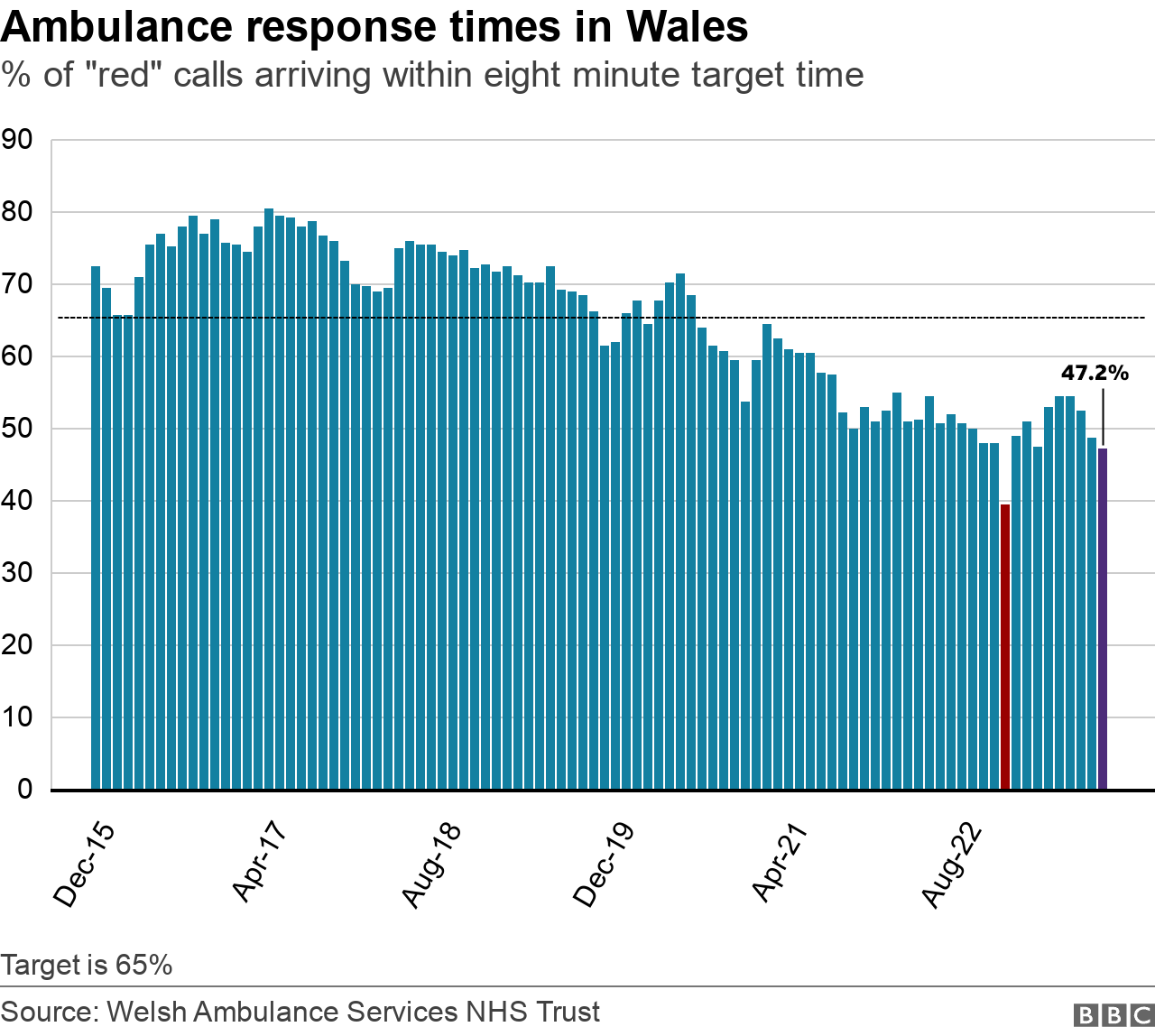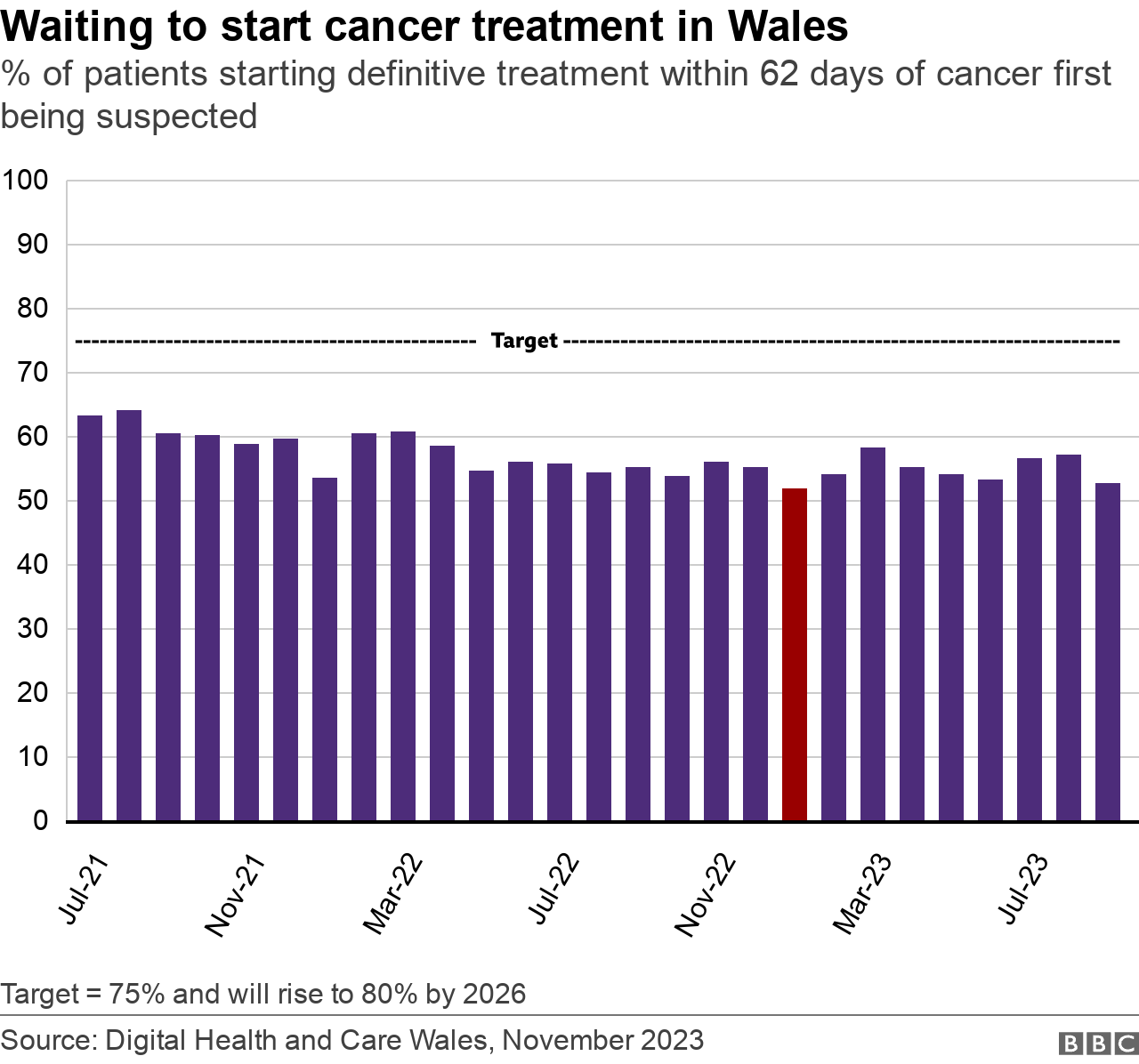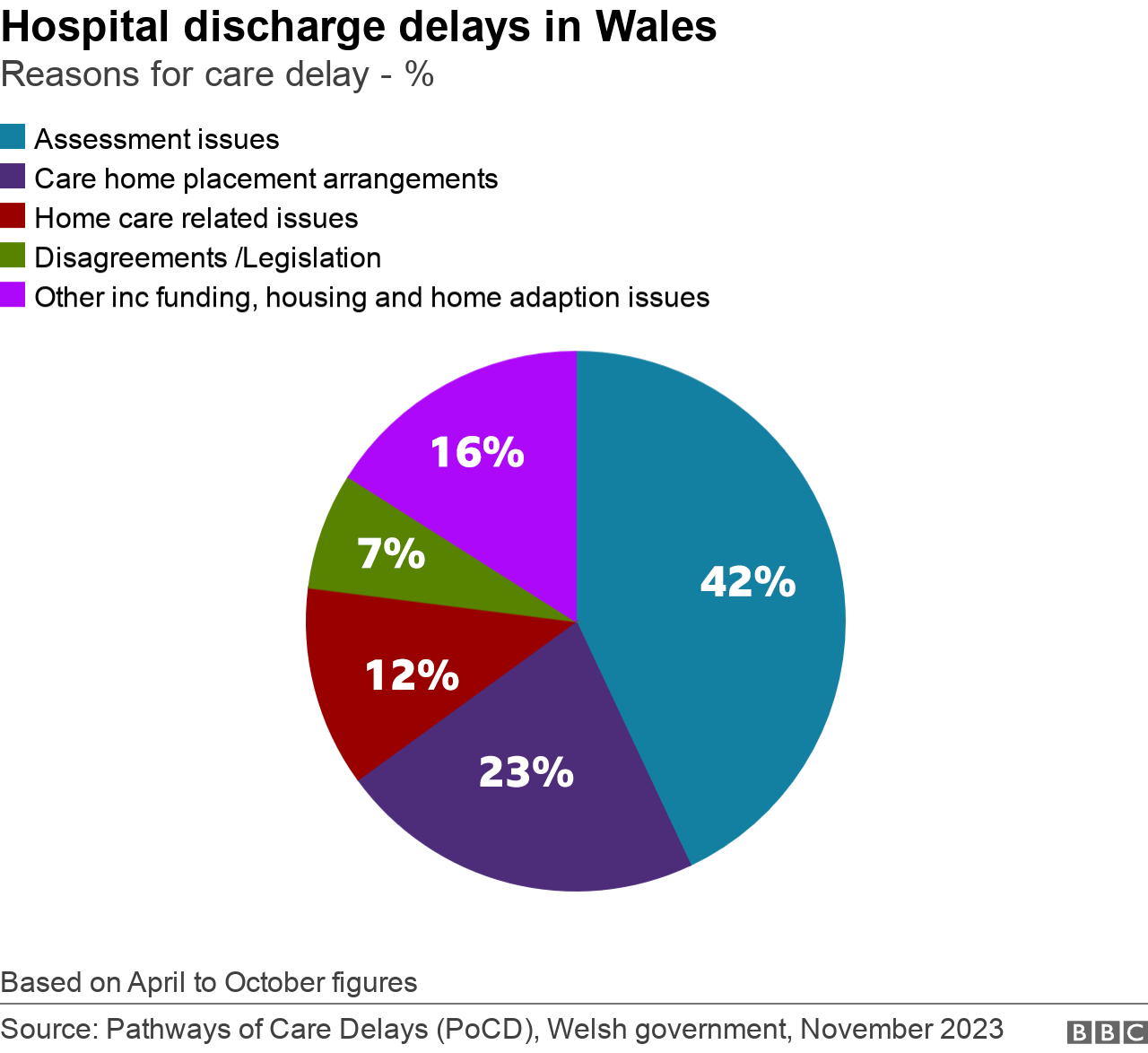NHS Wales: Hospital waiting times hit record high again
- Published

Figures show 1,550 patients remained delayed in hospital beds waiting for discharge although well enough to leave
NHS waiting times have hit another record high for those waiting for hospital treatment in Wales.
There were 761,111 "patient pathways" - or 594,000 actual patients - also the highest on record.
Cancer waiting times and ambulance performance figures were the second worst on record, while A&E waiting times were the worst this year.
The Welsh government said despite the overall rise, it was "encouraging to see that the longest waits" falling.
Patient pathways are higher than the actual number of people waiting as some patients are waiting on more than one list.
Those waiting more than a year stands at 133,519 - slightly down on the previous month.

We can compare with England if we adjust to only include consultant-led specialisms which shows 19.6% of patient pathways in Wales were over a year, compared to only 5% in England.
There are 26,423 (3.9%) on the list in consultant-led specialisms in Wales waiting two years, but only 227 (0.003%) in England.
Two-thirds of the longest waits in Wales are in four specialisms, topped by orthopaedic and followed by ophthalmology, general surgery then ear, nose and throat.

An orthopaedic hub will be opened in Llandudno Hospital, external, with £29.4m of Welsh government funding meaning straightforward cases can be handled there and away from busier hospitals, where urgent cases take priority.
However, work will not start until February and it will be another year before it is at full capacity.

Ambulance waiting times saw 47.2% of life-threatening "red" calls arrive within the eight-minute target time, the lowest since December.
In October, the average response time was eight minutes 26 seconds, eight seconds slower than a year ago.
There were also more than 23,000 "lost" hours spent by ambulances outside A&E units, waiting to hand over patients - the worst since March 2022.
A&E figures were also the worst since December - there were 68.7% of patients spending less than four hours in A&E against a 95% target.
The average wait was two hours and 49 minutes, more than five minute slower than the previous month.
However, when major A&E units are compared to England, the performance in Wales was slightly better for a second month in succession.
Meanwhile, nearly 10,000 people waited more than 12 hours in A&E - the target is that no-one should wait this long.

Only 52.9% of cancer patients in September started definitive treatment within 62 days of it being suspected, well below the 75% target.
This marked the second worst month since the new target came in.
Glenn Page, policy manager at cancer charity Macmillan said: "Performance has declined in every region of Wales, and this systemic failure calls into question how the Welsh government will achieve its commitment of treating 80% of people with cancer on time by 2026."
The Welsh government said it was putting significant pressure on health boards to improve, adding: "It is concerning that so many are missing the target date for treatment."
Numbers waiting for more than a year for an outpatient appointment fell by 971 to 51,652 when no patient was due to be waiting this long by the end of last year.

Figures also showed 1,550 patients remained in hospital beds waiting for discharge despite being well enough to leave.
This data has been available for seven months and shows a steady number - the equivalent of all the hospital beds in Cardiff and Vale's two main hospitals - of mostly elderly patients who cannot get home or into residential care.
The Conservatives called the waiting time statistics "shameful" and "unacceptable."
Health spokesman Russell George said: "These are real people languishing on these lists, often in pain. Wales deserves better."
Plaid Cymru health spokesman Mabon ap Gwynfor said the figures were "extremely concerning".
He added: "We have a government that has no sense of urgency and seems to be content with managing decline rather than arresting the situation."
Prof Jon Barry, director in Wales at the Royal College of Surgeons, added: "Waiting times figures in Wales are mounting month on month, which is disappointing for the healthcare staff working incredibly hard to get patients treated quickly in extremely difficult circumstances."
The Welsh government said: "Although the increase in the total waiting list this month is very small, it is disappointing to see them at their highest levels on record - that is due to the continued number of people joining the waiting lists, with the highest annual number of new referrals on record in the latest 12 months.
"Health boards are working hard to tackle the longest waits but the most urgent cases must always be seen first."

These figures show us a snapshot of September and October as we move closer to what is traditionally a far busier time of year.
The context is important.
We've also seen the second highest number of the most life-threatening calls to the ambulance service.
Nearly 14,000 patients have gone through the cancer diagnostics process to be told they don't have cancer.
Welsh government can also point to some of the longest waits coming down - so progress is being made - but, overall, the bigger problems don't have easy, overnight solutions.
We still have big numbers of patients every month who can't be discharged because care options outside of hospital aren't there.
If we go back to that bigger picture, it doesn't bode particularly well to see the figures creeping in this upward direction as we head into the really busy winter period.
Related topics
- Published19 October 2023

- Published9 November 2023

- Published31 October 2023

- Published14 March 2024
